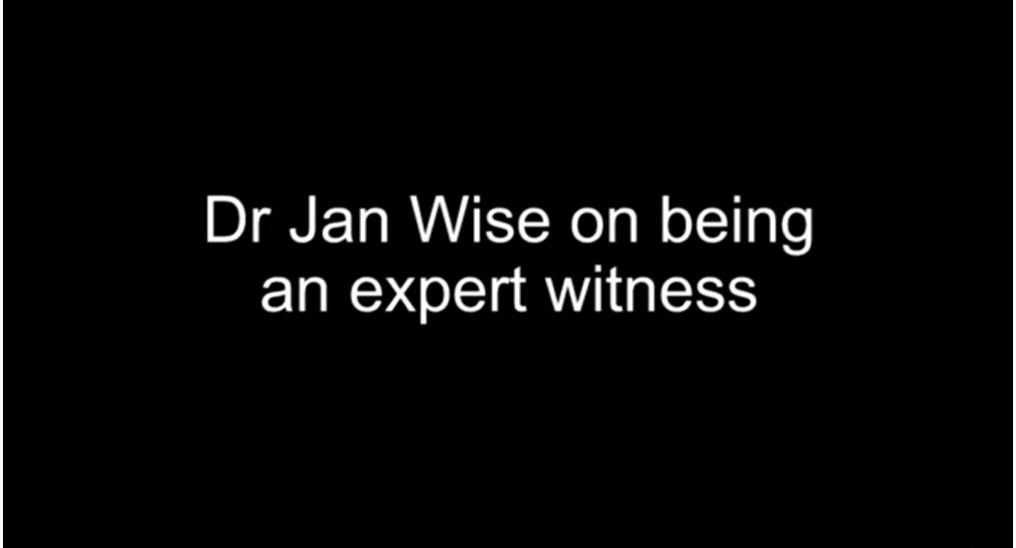An expert witness is qualified to assist the court on specialist or technical matters within their area of expertise.
This guidance is for doctors in England and Wales.
Training and skills
There is no formal training or qualifications you need to become an expert.
Lawyers usually look for experts who:
- have the relevant practical experience in the area
- can provide concise and comprehensive reports
- are impartial
- have sufficient time to deal with the case properly
- will attend the court to give evidence.
Before embarking on expert witness work, you should consider taking one of our training courses in report writing and court skills. See when we are holding the next course.
You should also yourself familiar with the relevant CPR (Procedure rules and practice direction).
Getting work as an expert witness
There are a number of channels available to help you find medico-legal work:
- word of mouth recommendations
- registration as an expert witness with a professional body or with expert witness directories
- contacting law firms who act in the fields of law in which you wish to be considered as an expert
- contacting your local law societies
- writing articles for publication in professional journals and newsletters
- marketing yourself - establishing a website and using social media
- advertising in the New Law Journal and Solicitor's Journal.
Get insight into what it means to be an expert witness and what makes the role interesting directly from one of our members.

Receiving the letter of instruction
There are some key points to look out for if you receive a letter of instruction. It should:
- provide clear information on the type of report required: liability, causation, condition and prognosis
- contain the client's full name, address, date of birth, his contact details and the details of the hospital or GP surgery where they were treated
- clarify the nature and extent of expertise required
- state who is responsible for the fee.
If you are not clear about what is expected of you, or you can see that the case involves matters outside your expertise, you should not accept the instruction.
Preparing the report
As an expert witness, your duty is to the court. This overrides any obligation to the person who is instructing or paying you.
The main trait of expert evidence is that it is opinion evidence. However, you are expected to limit your opinion to your personal expertise.
When writing your report ensure it:
- addresses the court and not the party from who is instructing or paying you
- always complies with the requirements set out in the CPR
- includes your signed declaration that you understand your duty to the court and have complied with it.
You must take reasonable steps to verify any statement before you sign your report. You must also not write or sign documents that are false or misleading because they omit relevant information.
Attending court
If you are summoned to the court after providing a report, you should:
- familiarise yourself with the report or statement you provided
- speak to the lawyers involved about any other documents you need to read in preparation
- inform the solicitors about any mistakes or omissions in your written evidence
- practise your points so they are clear and concise
- agree a place to meet on the day with the barrister or solicitor
- do some information gathering on the opposition's counsel, if possible.
Getting paid as an expert witness
As an expert witness, you are paid for the time it takes to formulate, present and discuss your evidence.
Most instructing solicitors or agencies may prefer to use their standard terms and conditions or fixed fee rates, but you can negotiate the terms on which you agree to provide your services.
Before entering into a contract, we advise you to seek independent legal and taxation advice.
Fees
The fees you set should be representative of what is fair remuneration for your services, based on your individual circumstances (e.g. effort, skills and resources applied).
Factors to consider when negotiating your fees:
- time to review papers and write the report
- examining the claimant
- dealing with written and phone enquiries
- knowledge and experience
- any running costs, travel expenses and professional expenses
- unpaid time attending the court (including cancellation charges).
Read our full guidance on medico-legal fees.
Terms and conditions
We have drafted terms and conditions as a guide to assist you when considering the most relevant matters in your contract. They are free to BMA members. Please sign into the BMA website to view the downloads below.
Additional considerations
- Expert witness work is not exempt from VAT. You will need to be VAT registered if your rolling VAT- registered turnover in any 12 month period exceeds the VAT threshold.
- The principles set out in the GMC's Good Medical Practice also apply to doctors working as expert witnesses. You must ensure you take out appropriate insurance or professional indemnity cover before you start medico-legal work.

